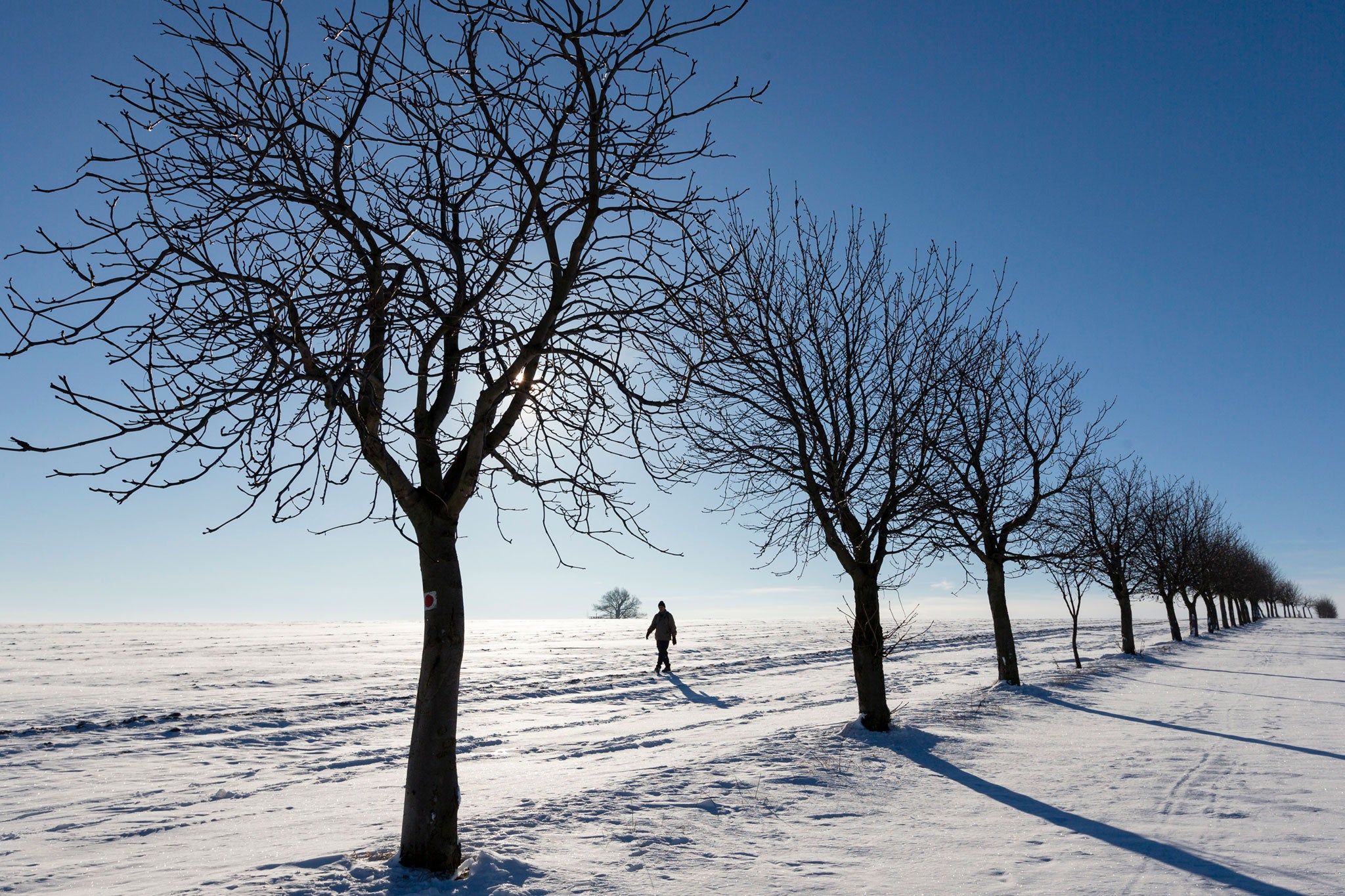Schubert's Winter Journey by Ian Bostridge, book review: Kindred spirits on a poetic quest
Ian Bostridge has turned his obsession with Schubert into an exquisite memoir

Your support helps us to tell the story
From reproductive rights to climate change to Big Tech, The Independent is on the ground when the story is developing. Whether it's investigating the financials of Elon Musk's pro-Trump PAC or producing our latest documentary, 'The A Word', which shines a light on the American women fighting for reproductive rights, we know how important it is to parse out the facts from the messaging.
At such a critical moment in US history, we need reporters on the ground. Your donation allows us to keep sending journalists to speak to both sides of the story.
The Independent is trusted by Americans across the entire political spectrum. And unlike many other quality news outlets, we choose not to lock Americans out of our reporting and analysis with paywalls. We believe quality journalism should be available to everyone, paid for by those who can afford it.
Your support makes all the difference.When Franz Schubert died aged 31 in Vienna in 1828, a year after the death of his hero, Beethoven, his deathbed contained the reading that had brought some distraction – a James Fenimore Cooper novel – and the proofs of Winterreise, his setting of 24 poems by Wilhelm Müller, a work of art which continues to enthral and fascinate. Schubert was not a revolutionary – although acutely politically aware – but his settings of poetry undoubtedly were.
The tenor and, it transpires, fine writer Ian Bostridge is a great guide to the mysterious winter-scape and supreme symbiosis of word and music, the marrying and tussling of piano and vocal lines, which Schubert took to hitherto unimaginable musical and emotional planes. Bostridge's engaging mélange of memoir, cultural history, close musical reading, glimpses of biography and wide-reaching examples of the ripple effect of Winterreise's influence on writers, composers, historians, and thinkers ever since – including Beckett, Benjamin Britten, Djuna Barnes, Paul Auster, Thomas Mann, and Slavoj Žižek – makes a strong case for Winterreise being as deserving of a place in our common experience "as the poetry of Shakespeare and Dante, the paintings of Van Gogh and Pablo Picasso, the novels of the Brontë sisters or Marcel Proust".
Bostridge's own "obsession" spans three decades, each performance an individual journey (as befits the "Everyman" quality of Schubert's dropping of Müller's definite article in the title), audience, venue – a Moscow ice-storm particularly evocative – and keyboard companion vital ingredients.
Taking each song as a chapter and springboard, he explores the context and times Müller and Schubert were working in, unearthing remarkable details along the way, from a cultural history of tears, to early photographs of snowflakes, the last days of charcoal-burning as a profession, to 19th-century understanding of natural phenomena such as Ignis fatuus (will-o'-the-wisp) and "mock suns", the linden tree in German lore, to Goethe on glaciers.
He unpacks a possible backstory. Could this wanderer in a hostile, frozen landscape, where dreams of a thaw and springtime are just that, illusion, have been a private tutor, à la Rousseau's La Nouvelle Héloïse, a familiar post still for the early-19th-century intelligentsia (Schlegel, Fichte, and Hölderlin were all tutors), ousted from the home of a moneyed daughter beyond his station – a pertinent subject at this time of restrictive Hapsburg marriage laws? Perhaps.
But Bostridge also allows much of the cycle's mysterious nature to rest unpicked, "absence" in the Byronic sense of displacement as much a character as winter. And winters were extreme then: frozen rivers, ice-flowers, the shifting ice of the Baltic's surface the norm, the mightiness and transience of nature omnipresent.
Some words redolent of German Romanticism are lingered over, such as "fremd", the cycle's opening utterance, with its associations of "stranger", "alienation" and "otherness", significant after the passionate fervour of Napoleon's heyday in Europe, and what came after in Metternich's Austria of censorship and restriction, elsewhere, too, a time of stifled nationalism. Or "Einsamkeit" with its Romantic ambivalence of "solitude" and "loneliness", conjuring up images of Caspar David Friedrich paintings, imperative to an understanding of Schubert, Bostridge argues.
Some of the writing on music is exquisite and revealing. How true that the moments in the major key are sadder than the minor: "dreams of happiness, cast in the major key, [are] all the more heart-breaking for it". Or: "the gentle rustling… itself gently interrupted by horn calls, the Romantic sound par excellence, the call of the past, of memory, sensuality at a distance".
In his diary of 1815, Müller wrote: "But courage! Perhaps there is a kindred spirit somewhere who will hear the tunes behind the words and give them back to me." He was never to hear Schubert's settings, but Bostridge leaves us in no doubt that Schubert succeeded beyond Müller's wildest dreams.
Join our commenting forum
Join thought-provoking conversations, follow other Independent readers and see their replies
Comments